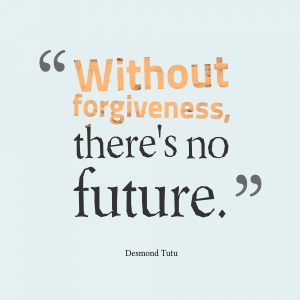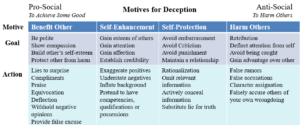It’s time! 5 Steps to Finally Letting it Go
By Jamie C. Williamson, PhD
 Fall is the time when trees remind us how important – and beautiful—it can be to let things go.
Fall is the time when trees remind us how important – and beautiful—it can be to let things go.
Trees let go of their leaves to save energy and protect themselves from damaging conditions. As the days grow shorter, trees sense the natural loss of light. In fact, trees can detect changes in daylight of as little as a half an hour. When trees sense the threat of colder temperatures and less sunshine, they undergo chemical changes that causes their leaves to shift from a green pigment to the colorful yellow, orange, and red we associate with autumn’s unique beauty. Then, the leaves fall.
Lovely as this all is, it happens because, as the days grow shorter, trees block the veins that move water to the leaves. Once a leaf is completely choked off, it is detached from the tree. The trees know that letting go of the leaves is necessary if they are to cope well during winter and thrive in the spring.
So, how do you make like a tree and let go of what is draining your energy and threatening your ability to thrive?
Follow these 5 steps.
1. FACE REALITY. Identify the aspect of your current or past circumstances that drains your energy, keeps you agitated, and threatens your overall happiness. Many people have more than one bad experience, loss, injustice, betrayal, disappointment, personal regret, or broken relationship that troubles them. To get started on letting go, focus first on the concern that is most central to your identity, whether that be your marriage, your job, your kids, your X, some unjust treatment, or an unfortunate past event.
2. ASSESS YOUR REASONS FOR HOLDING ON. What do you keep telling yourself that justifies holding on to something or someone that brings you no joy, drags you down, or is toxic for you? What causes you to fixate on and try to reinvent the past? What rationale do you use to deny reality, sustain your delusions and prolong your ability to let the heavy burden go? Read these common examples. Then be honest with yourself and write down your own story.
a. My inattentive husband will show more affection to me if I just lose these 20 pounds I gained since we got married.
b. I got screwed. They moved me down here and then fired me due to downsizing. I thought my boss was my friend. But, all he cares about is the bottom line. Sure, they gave me a severance. But I have a house I can’t afford and a wife and four kids to support. So, I’m unemployed for no fault of my own. How dare they do this to me.
c. My wife is an ungrateful, angry person (to put it nicely). So, when she starts complaining, I just start drinking so I can tune her out and give her something to really be mad about.
d. My unmarried, college-educated daughter ruined her life having a baby with a guy who is not remotely good enough for her. She supports herself but still expects me to treat her the same and to be a real grandpa to that child of hers. It all makes me sick, angry and sad. I can’t believe she embarrassed me and threw her life away. I just can’t pretend it’s all ok. It never will be.
e. He cheated on me. He and his tramp destroyed my family and shouldn’t be allowed to get away with it. I’m going to get a cut-throat lawyer and make him pay for all he has done to me and the kids. I keep telling everybody what he did to me, so he’ll be treated like a pariah and our kids won’t want to be around him.
3. REFRAME YOUR REALITY. Rephrase the way you think about your situation and acknowledge your personal power and responsibility for your own happiness and peace of mind. In other words, face the facts. Delusional thinking and denial involve a misplaced sense of personal power. On the one hand, when people distort the reality of their relationships or life circumstances, they are accepting the belief that they have the power to change the past and/or to change others – which, of course, they do not. Nobody does. On the other hand, when people manufacture these types of distortions, they also are embracing the belief that they have no power to change themselves or their reactions to the people or past events in their lives – which of course, they do. Everybody does.
Face the facts. Then try reframing your response to that reality, so that you are the hero of your story, not the victim. Write your new story down using something like this:
a. My husband is indifferent to me and has been for some time. Rather than accept the blame for his lack of interest in our marriage, I am going to tell him that he has two choices: Either enter marriage mediation with me or I will leave him so that I will be free to enter a new relationship with someone who truly loves me, just the way I am.
b. Losing my job sucked on so many levels. And, it almost broke me both financially and emotionally. But, I know it was a business decision and not personal. I’ll use my severance to start a new career where I won’t have to travel so much. In a way, they did me and my family a favor. We sure learned what is most important in life: each other. Now it’s my job to make sure we stay optimistic and get through this together.
c. My wife is an unhappy, disgruntled person who is impossible to please. And, no matter what I do, she will remain unhappy until she decides to change herself. All of this drinking is very unhealthy for me. Rather than become a miserable alcoholic and blame her for it, I am going to leave her, file for divorce, and when the time is right, find a kind, optimistic person to share my life with.
d. My daughter made choices that I believe are mistakes. No matter how much I wish things were different, I can’t change the fact that I now have a grandson and neither can she. I’m proud of her for accepting responsibility for her son. She is a loving and hardworking single mom. If she can do it, so can I. I will show her that my love for her is unconditional and that I can be a role model for my grandson.
e. My husband was unfaithful to me, which is not ok. But, I know his stepping-out was just a symptom of the problems in our marriage. We were both unhappy. I will stop whining because, in a very real way, he did me a favor. Now I am free to find someone who will really love me. And, the kids will eventually be happier because they won’t hear us fighting all the time. I will encourage them to have a close relationship with their dad. We can have a friendly divorce that will make co-parenting easier and allow us all to be less stressed out all the time. I can do that for my kids….and for me.
4. FORGIVE THOSE WHO HURT YOU, INCLUDING YOURSELF. Reframing your story is an important step on the climb up to the high ground of forgiveness. Forgiveness challenges most people because they feel that if they let go of their anger they are either giving up or giving in. But, forgiveness is neither of these. Forgiveness releases you from the hold others have on you so you can truly let go of your hurt, anger, disappointment, embarrassment, or shame and focus on living out your new, much happier story line.
Forgiving others makes it possible to stop constantly re-igniting your anger about being deeply hurt, unjustly treated, used, or abused. Forgiving yourself, while also making amends to those you wronged, liberates you from the self-imposed shackles of shame, embarrassment, guilt, and remorse.
Forgiveness frees us all from the futility of trying to change things we cannot change. Forgiveness – for yourself or others – brings out your vibrant colors, cuts off the water supply to your pain, and allows the spent leaves of the past to fall gracefully to the ground. Forgiveness is NOT giving in, it is letting go. Forgiveness restores your positive energy, improves your ability to cope, and makes it possible to prepare for and thrive in your new life.
5. FOCUS ON IMPROVING THE PRESENT. Accept personal responsibility for letting go of the coping strategies that drain your energy and keep you from thriving. Take advantage of the lessons learned and wake up every day determined to boldly face the facts and replace your denial and delusional thinking with acceptance and an authentic assessment your reality. Decide once and for all to change the way you respond to your circumstances. Write down and consistently repeat your revised story that makes you the hero, even if only because you are creating a second chance for yourself. Dream about and set goals for a stable, happy future. Commit to and plan for making progress on those goals each day. Make a list. Cross at least one thing off each day.
You CAN let go.
And, when your leaves of anger, resentment, disappointment, and heartache fall away, you will be much stronger and ready to prepare for your own delightful spring.
 Henry David Thoreau described it this way in his journal entry for October 29, 1958:
Henry David Thoreau described it this way in his journal entry for October 29, 1958:
“Nature now, like an athlete, begins to strip herself in earnest for her contest with her great antagonist Winter. In the bare trees and twigs what a display of muscle.”
Letting go shows your strength.
And, letting go makes you stronger.
If you are finding it hard to let go of an unsatisfying relationship or something from the past that drains the joy from the present, print this post, do some serious introspection, follow the five steps, and change your life for the better.
If it’s a current relationship that troubles you, share this post with your partner, face reality, and decide together how to either let go of the past, or let go of each other.
And, let me know if I can help.
You’ll find me at Amity Mediation Workshop on Florida’s Emerald Coast where we do Marriage Mediation, Family Dynamics Mediation, and Divorce Mediation. We’ll help you let go of the past, focus on the future, re-calibrate the colors of your life, and remain on friendly terms, whether you stay together or not.
Sign Up Now to receive Dr. Jamie’s “Make it Work” emails packed with practical, and helpful relationship improvement tips.
Special thanks to Roger Di Silvestro of the National Wildlife Federation Blog for helping me learn why leaves fall from trees in autumn and to my friend Kathryn Fraser at Fraser Studios for her professional consultation on the media for this post.


 In the end, forgiveness is a choice.
In the end, forgiveness is a choice. 
